Artist is looking for artists to start a movement
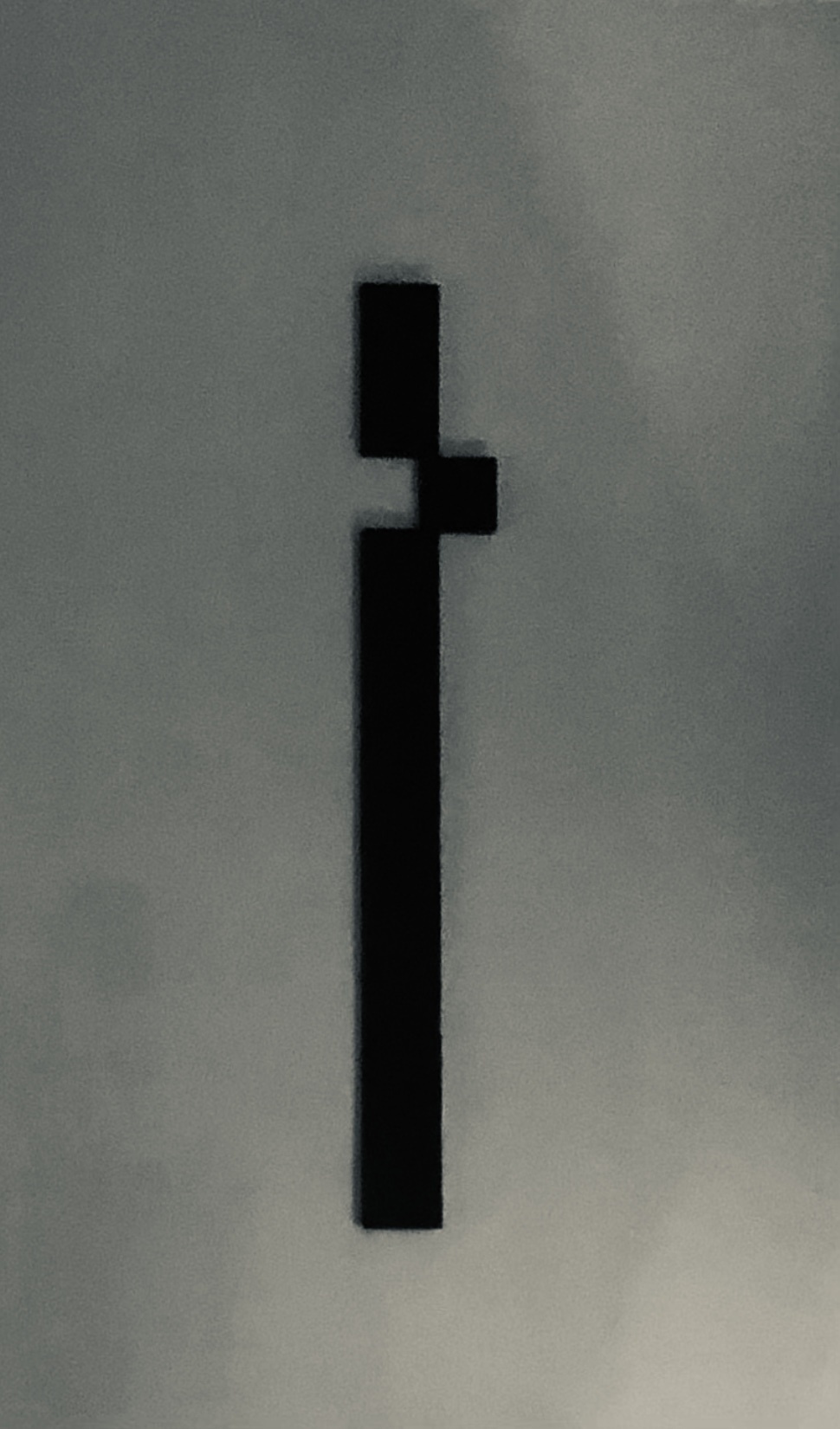
Kavanism is a new approach representing tension in a composition space invented in 2023. Kavanism brings different brush direction to go against each other in the same picture, resulting in paintings that appear charged with force and counter tension.
"I paint and destroy my canvas to come up with a new painting that goes against my will."
In Kavanism final stage after the painting is made, the view point is turned upside down, in and out, like reading from right to left.
Kavanism abandoned the idea of art as an idyllic imitation of the painter's nature, instead it returned to reassembling the subject into new shapes to represent a fresh, more complex version of the painter's level of anxiety.
Come and meet me at my studio for more.
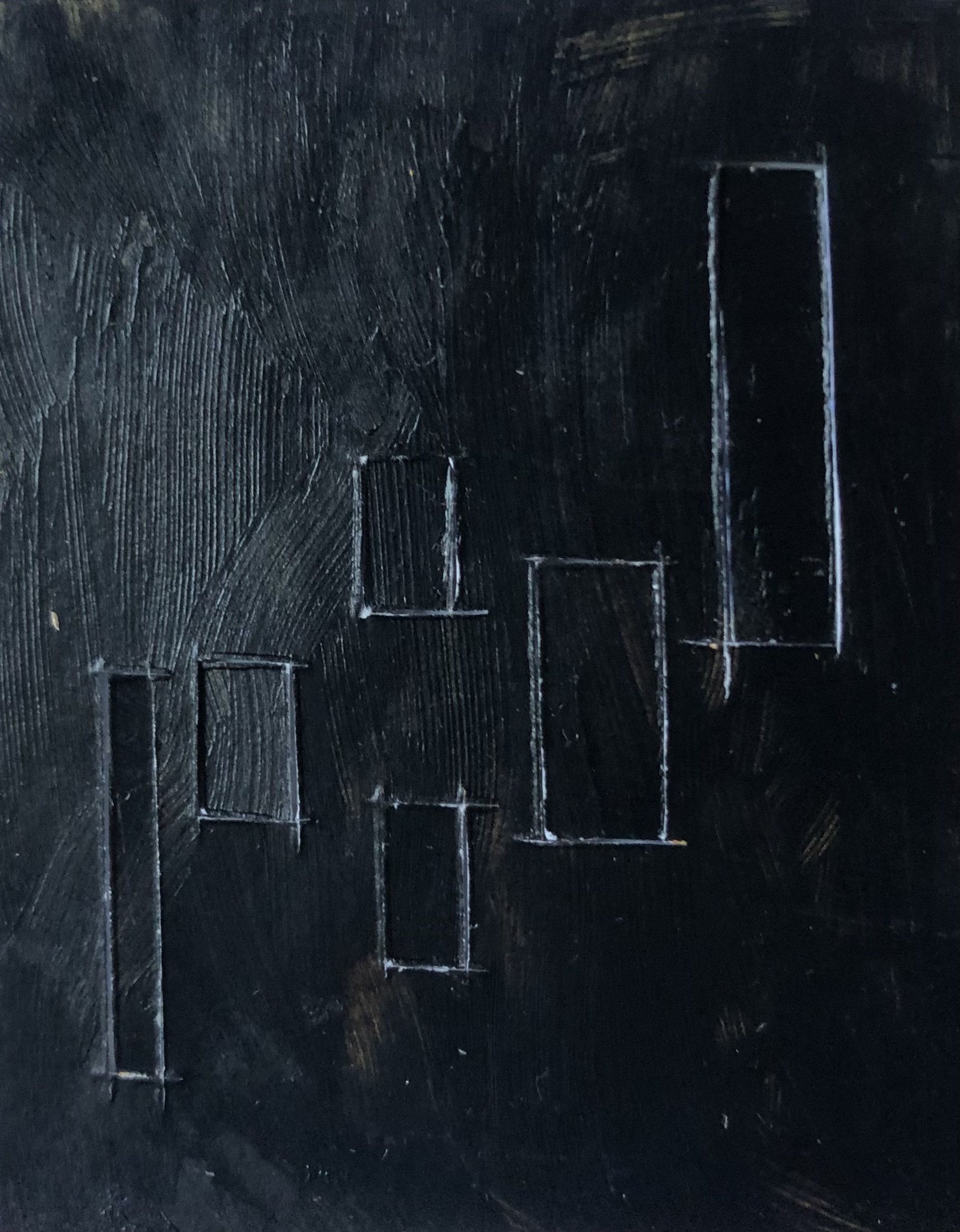
The "black line" is charged with energy and the potential to create change
Oil on paper Fundbüro 2023
Kavanism - Different signs same meaning
tension conflict Ai
The language of the younger generation is in conflict with older generations due to differences in communication styles, heavy use of the latest technology-driven slang, and differing views on communication.
The youth, favoring fast communication using abbreviations and visual elements, create new gaps and distortions in communication.
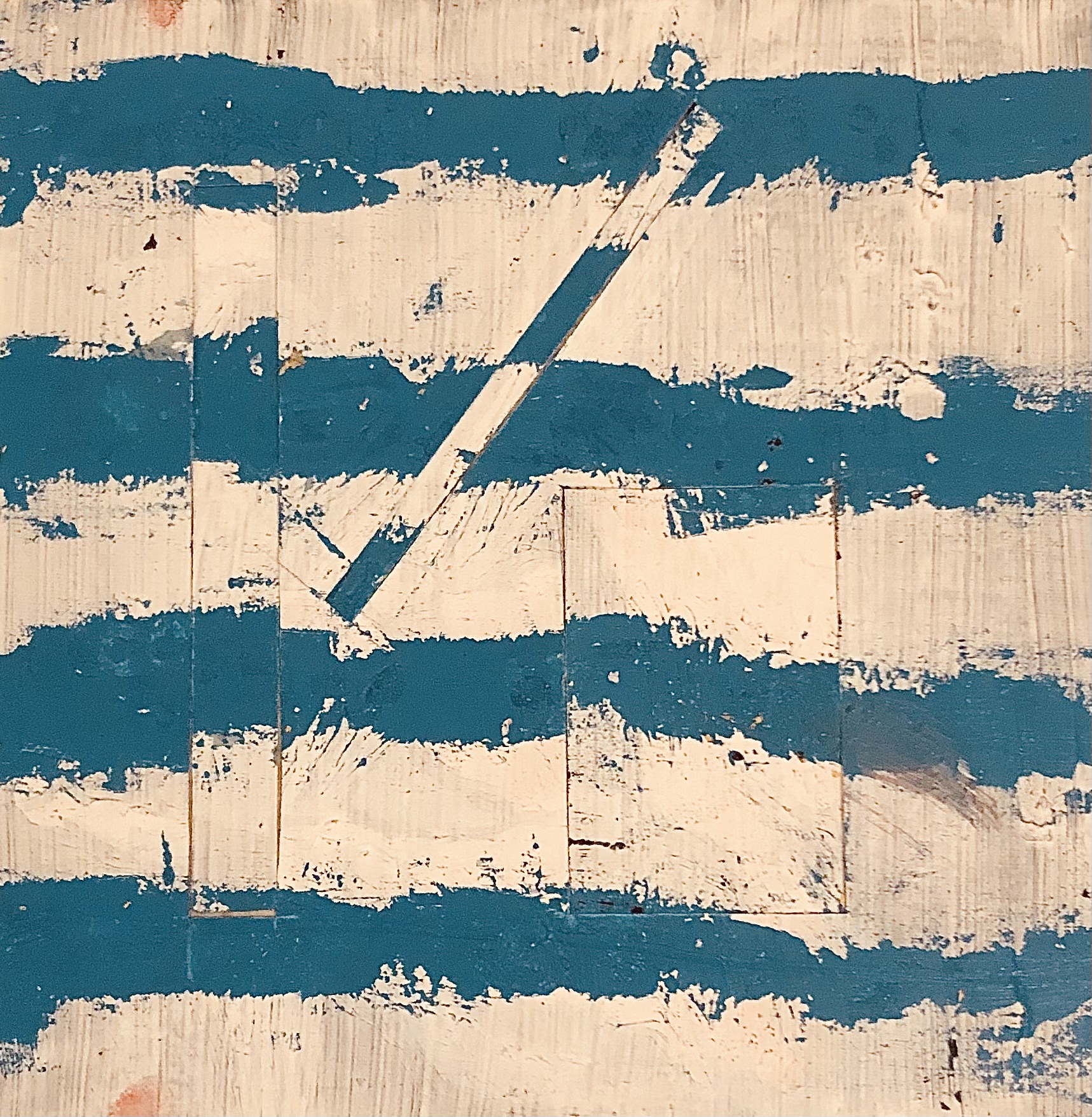
Existing words gain new, often distorted, meanings. Familiar terms can sound completely foreign to older people, leading to mutual confusion and a sense of alienation. Older generations often equate respect with formal language and traditional manners. Young generations often originate from ephemeral platforms, spreading internationally at an incredible speed, which makes it difficult for older generations to keep up.
The generational language conflict can be viewed through the lens of Avi Albers Ben Chamo's "24 Works of Art and Their Conflicts". Kavanism is the friction and misunderstandings in communication, in reading a new image in an existing image, where differing directions, values, styles, and expectations create a conflict. (See the story Vandalized Touch work in Berlin)
"24 Works of Art and Their Conflicts" wishes to exhibit positivity and hope in difficult times of transition and to prove that with time the youth will foster human connection and needs for human interaction and support from the old. The communication gap between the young and older generations highlights not just a negative side but a need for "bridges" and mutual trust in order to move forward.
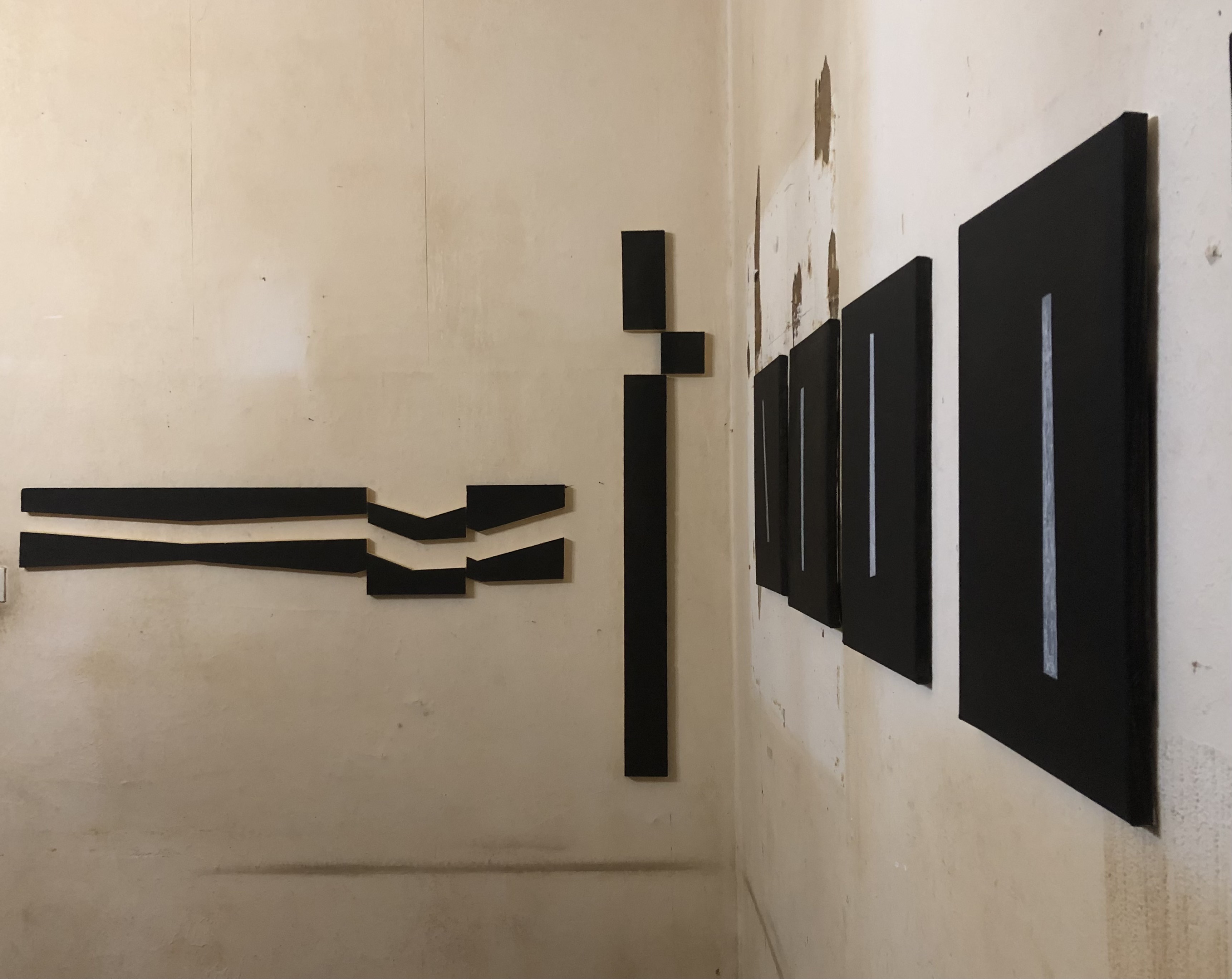
The "black line" The Wrong Stripes Exhibition Fundbüro (2023)
Kavanism
Exhibited at Fundbüro 2023, Berlin
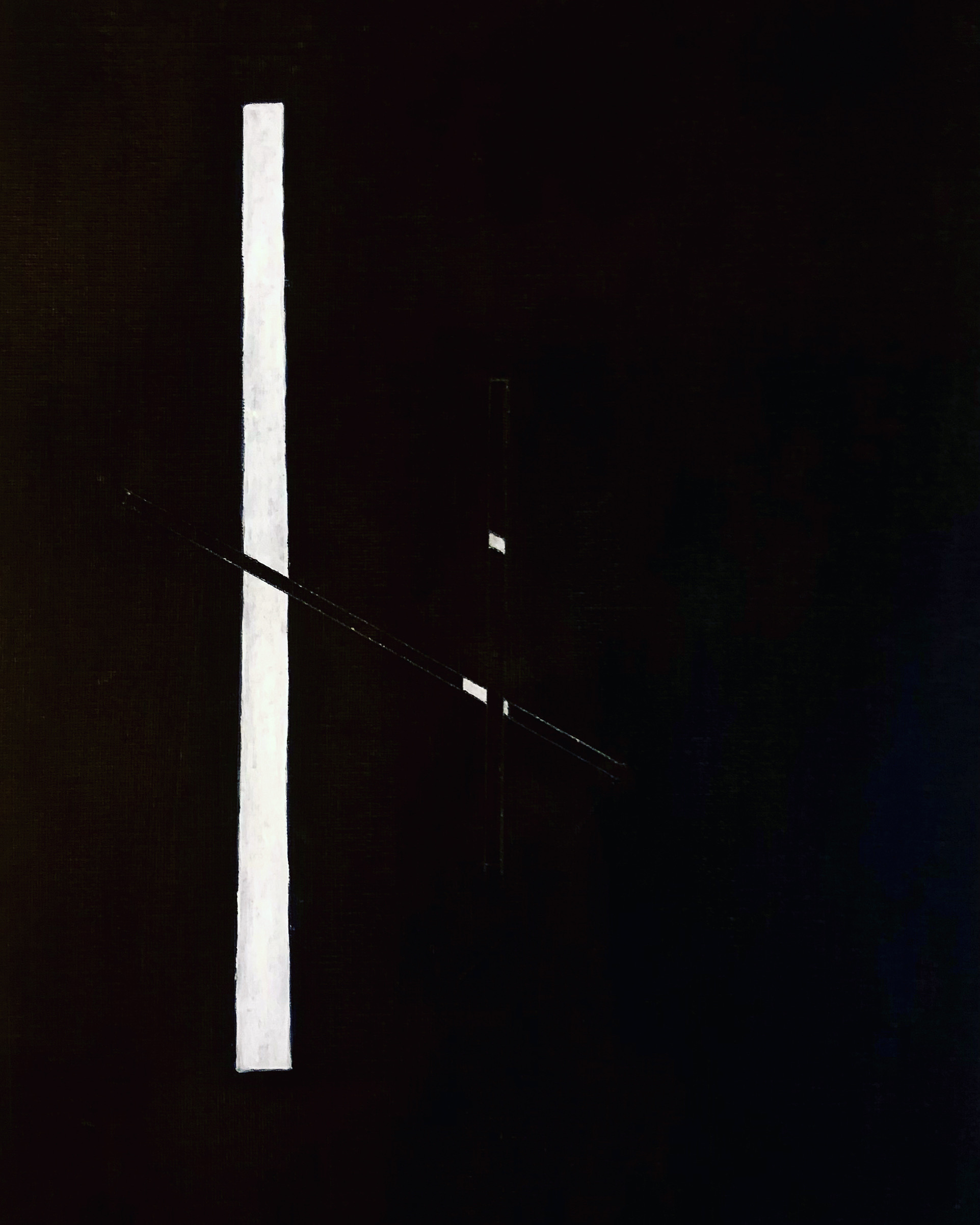
What is the origin of the Word? The word "Kavanism" is a play on the Hebrew words "Kavana" (intention) and "Kivun" (direction).
Why the Interrupted Line? The central visual element is a single, interrupted line that represents a departure from a continuous, accepted path.
A symbolism of Change? The desire for change, the interruption signifies the "change" and the crack needed to detach from the heaviness and stability of the current stream of things.
Tell me more about Tectonic Detachment: The process described on the canvas by rotation show an inevitable tectonic detachment from the old generation and its outdated ideas.
Emergence of New Ideas have any connection to father and son, future and past generations: You are right, these new ideas eventually gain their own "life and desires," forming a "counter line" to the original. Kavanism is a direct reflection of the artist's relationship with society, reflecting interpersonal and a more complex version of the painter's reality and level of anxiety. Art should be an expression of a playful experimentation, digging and finding your own artifacts by going against your own will. The "black line" is not just an aesthetic element; it is charged with energy and the potential to create change.
See more work and full interview at " Art [at] Berlin
Over time, the artist learns that all the virtual ways for his personal progress and growth do not work. At best, he is forced to understand that his way to self- and spiritual growth is only through society and personal and human encounters.
Contemporary art is currently limited and dedicated to a dream in which the artist needs to improve his marketing skills more than what he creates for and for whom. The bookshelves are full of books that come to plan the artist to be a source for money and trade and not as a source of expression of the inner soul.
A work of art whose sole purpose is to be sold is meaningless. In "kavanism" or in any art form or "ism".